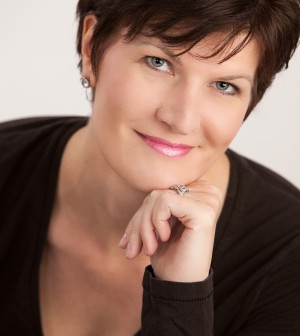- Finding Unshakable Power in a World That Wants to Pull Us ApartPosted 6 months ago
- What could a Donald Trump presidency mean for abortion rights?Posted 6 months ago
- Financial Empowerment: The Game-Changer for Women in Relationships and BeyondPosted 7 months ago
- Mental Health and Wellbeing Tips During and After PregnancyPosted 7 months ago
- Fall Renewal: Step outside your Comfort Zone & Experience Vibrant ChangePosted 7 months ago
- Women Entrepreneurs Need Support SystemsPosted 7 months ago
Fear is Fatal—Thoughts on my Father's Suicide

Today is the 5th “deathiversary” of my father’s suicide. He was 62 years old. He was physically healthy. He loved Hawaii, vodka martinis, English pubs, telling jokes and running marathons. He loved my mom, even though they had split up 9 years earlier, after 33 years of marriage. He loved my sister, though she never really felt it. And he loved me, though I had forgotten.
My dad spent most of his life following his fear rather than following his heart.
When I was growing up, I watched him drag himself—miserable—to work every day. He always told *me* to pick a career I loved. He also told me, “Do as I say, not as I do.” Because what he was modeling was taking a job for money, not for love—caving to the pressures of family and reputation, giving in to society’s definition of success, not your own.
My dad wanted to be a lawyer and even went to law school when I was a baby. But he dropped out after the first year and went to work at the family business after the family threatened to cut him off financially if he didn’t come back. He didn’t go back for love of his family—his family of origin or his new family of my mom and me. He didn’t go back for love of the business. He didn’t even go back for love of money. As an attorney and a really smart guy, he could have earned the money he wanted. No, he went back out of fear.
He was afraid of looking bad if he suddenly went broke, albeit temporarily. (What if he couldn’t earn the money he wanted?) He was afraid of failing as an attorney. (What if the only job he could get actually was at the family company?) He was afraid his parents might be right. (What if he wasn’t good enough to be a lawyer—or the judge he dreamed of becoming?)
My dad believed the fear.
He believed he wasn’t good enough. He was afraid of being laughed at if he failed. He was afraid of being criticized for trying.
I wrote above that I had forgotten that my dad used to love me. I never forgot that he *used* to love me—when I was a kid, when I was making straight A’s, when I was graduating from Harvard. What I had forgotten was he loved me in the years leading up to his suicide. In those eight years between first suicide attempt and final suicide success, he had pulled away from everyone who loved him. He didn’t believe we would/could love him for HIM—for who he really was, without the money, the stuff, the shiny veneer. He believed he wasn’t good enough for us to love him. He believed we would reject him if we knew the real him.
Funny that I always felt the same thing about him. I always felt that his love was conditional. As long as I did well in school, went to Harvard, stayed skinny and pretty, and gave him bragging rights, he would love me. If I revealed the real me, if I failed to meet his expectations, he wouldn’t love me—I believed and to a great degree still believe.
People tell me—because they need to believe it themselves—that parents love their children unconditionally, that my dad loved me unconditionally. Deep down, you and I and everyone who’s honest with themselves knows that unconditional love is not automatic, even from parents. It is a conscious and enlightened choice. And my dad was neither fully conscious nor at all enlightened. That is not a judgment. It is simply an acknowledgment of fact. The best most of us can do is practice unconditional self-love. That in itself is extremely rare. And that in itself would end suicide. No one who loves themselves completely and unconditionally would kill themselves.
My dad always told me to do what I love.
I add to that *being* who I love—and loving who I am. It takes work. It takes awareness and consciousness and persistence. It takes acceptance, even when you’re working on being a “better person.” It takes forgiveness, even when you can’t forget.
I wish my dad knew me now. I wish he knew my children—my oldest daughter, whose birth he witnessed. He was the first one to hold her. I wish I had known more of the real him. I wish he had shared more of the real him.
These wishes will never be. So I will do what I can to keep my husband, my children, my family and my friends from having these regrets about me. I will live in a way that they will know who I really am.
Love me or leave me, the best I can do for them—and for you—is to be fully me.
Kelly Eckert is the creator of the Fear Releasing Method™ and Branding with Spirit Animals™. As an author, speaker, advocate and coach, Kelly translates her degrees in biology (M.S. from Tufts) and anthropology (B.A. from Harvard) into bio-spiritual tools that help women put the meaning and magic back into their lives. Kelly is a co-host of the Geek Girl Soup podcast, where she gets to discuss her favorite films, TV shows, books and video games. She is an animal-lover, a Star Trek fan, a vegan chocoholic and an advocate of making life awesome by just being you.






